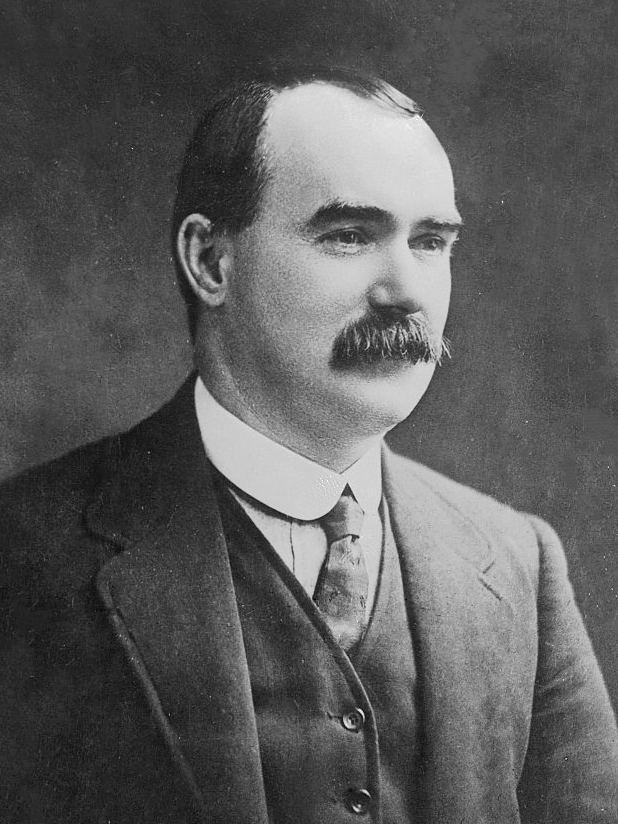PAUL DONOVAN reviews an important new book on the Scottish-born Irish revolutionary, James Connolly
James Connolly - Socialist, Nationalist & Internationalist presents a compelling portrait of James Connolly as a socialist, nationalist and international hero.

Author Liam McNulty does an excellent job of tracking Connolly’s journey from Edinburgh to Ireland and on to America before returning to Ireland and the final four years leading up to execution, as one of the leaders of the 1916 Easter Rising.
James Connolly was born in the Edinburgh slum of Cowgate in 1868. His Irish parents came from Co. Monaghan.
Connolly’s life work as a socialist activist began in the Scottish capital. He then went to Ireland in 1896, helping found the Irish Socialist Republican Party, with a view to transitioning nationalism into socialism.
McNulty chronicles in detail Connolly's prolific work of activism, organising working people, writing and editing papers.
He moved to America in 1905, where he learned valuable organising lessons from working with the unions.
Returning to Ireland in 1910, McNulty is dismayed that religion seems to cause division, with working class Protestants uniting under Edward Carson to oppose Home Rule.
McNulty tries to tease out Connolly's at times ambiguous relationship with Catholicism and the Church. He was an atheist but as a political strategist he understood fully the need to avoid conflict with the Church. So he promoted respect for Catholicism in the personal space, in the hope that it could be kept out of the wider political sphere.
McNulty highlights Connolly's strong support of the suffragette movement, whilst remaining himself conservative on the question of marriage.
Notably on the suffragette issue, Connolly shares the tactic of hunger strike but when imprisoned is treated notably better than female counterparts.
The book goes into much detail regarding Connolly's role in various groups and publications — the list of acronyms is not a short one. Indeed, it can be argued that there is a little too much detail of different political sects, perhaps a little more on the personality of the man would have helped, and fleshed out his profile.
That said, the detail does help explain how Connolly arrives at the Dublin GPO on Easter Sunday, 1916.
A socialist activist, Connolly figures along with union leader Jim Larkin as major players in the Dublin Lockout of 1913/14. A general strike in all but name, the dispute goes on for months. But in the end the workers are sold out by the trade union leadership — mainly in England. A lesson for Connolly.
The unrest of the lockout is part of the revolutionary atmosphere of the pre-World War I years. Major industrial action, along with the suffragettes’ struggle and battle for Irish independence all combine to create a febrile atmosphere.
McNulty brings this to life, placing Connolly as an important player in all of these struggles.
 James Connolly (image public domain)
James Connolly (image public domain)The outbreak of war does impact Connolly's views significantly. He is said at first to back the Germans, as the best bet for Irish liberation, though privately views British and German imperialism as equally bad.
A true socialist, Connolly opposes war as pitting working class against working class in defence of the capitalist class interests.
Latterly, though, there seems to be a conversion in some way to nationalism on the part of Connolly.
He meets the Irish Republican Brotherhood leadership over a number of days in January 1916, after which he and the Irish Citizens Army are committed to revolt.
McNulty teases this point out without ever really nailing why the methodical, analytical socialist decides to throw in his lot with the predominantly Catholic nationalists. At best, it seems to be a seize-the-moment action.
One sign that he did not completely trust his Catholic nationalist compatriots is a reported comment to his own socialist activists to hold onto their guns, once the successful take over of Ireland was complete.
The legacy of Connolly is briefly covered, without going too far down the road of what ifs.
All in all, this is a thoroughly scholarly work that provides some fascinating insights into a true Irish socialist revolutionary. Perhaps a bit hard going at times, the reader will feel far better informed on the important role Connolly and his comrades played in transforming Ireland during this unique period of history and the impact of his legacy later.
James Connolly - Socialist, Nationalist & Internationalist by Liam McNulty
Published by Merlin Press £25

